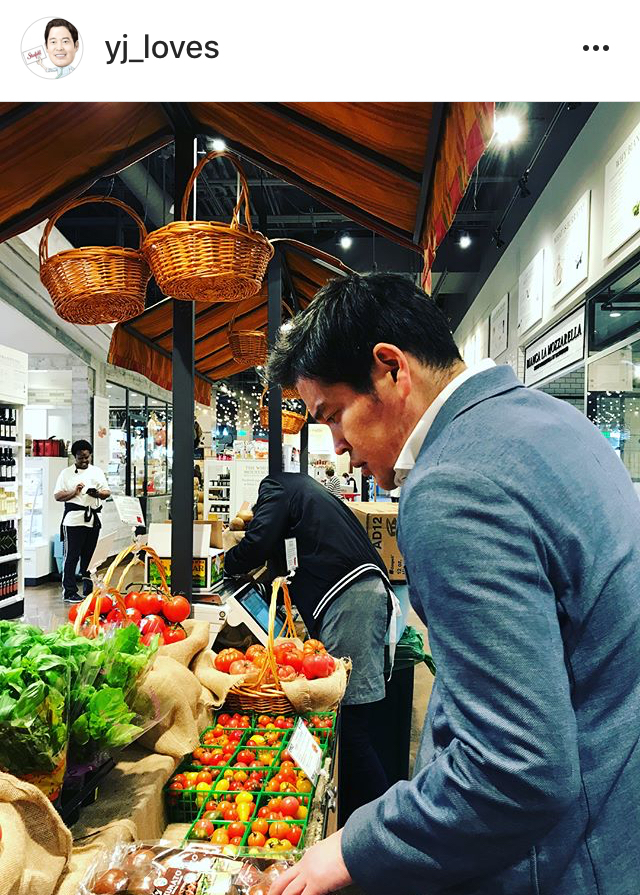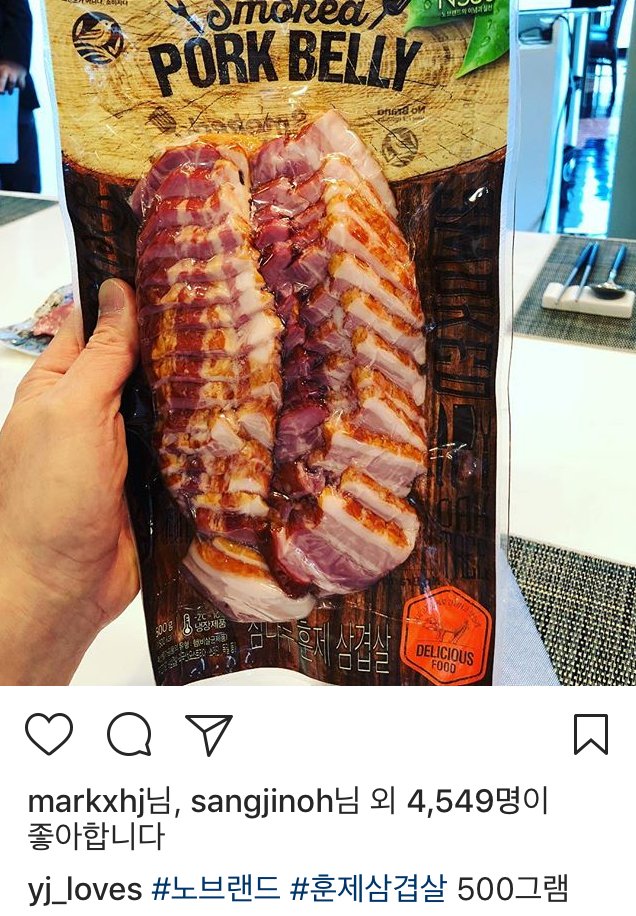Shinsegae eats up Korea’s retail industry with aggressive expansion
Mid-sized food companies struggle to retain loyal customers
By Kim Da-solPublished : April 5, 2018 - 16:09
Since 2016 when Shinsegae Vice Chairman Chung Yong-jin separated and began to run the management of E-Mart, a retail unit of Shinsegae group, E-Mart and its private brand products have never been so ubiquitous in the everyday lives of South Koreans.

While the number of E-Mart stores decreased by two to 145 in 2017 compared to the previous year, its product lineups became more diversified with launches of packaged ready-to-eat food brand Peacock in 2013 and other private brand No Brand in 2015.
The number of brick-and-mortar No Brand outlets reached 80 in 2017, while there was just seven outlets the previous year. The first offline Peacock store will open in Seoul this year, vice chairman Chung recently told reporters.
South Korea’s largest retailer has also been pushing with the expansion of its warehouse-style store E-Mart Traders. In the eight years since it first opened, it now has 14 outlets across the country, beating its US rival Costco which has 13 stores here.
“Not only do I enjoy E-Mart’s wider options for a variety of products including E-Mart’s PB products, I also find their produce such as fruits and meat more fresh and cheaper,” said Kim Hee-yeon, 33, who recently got married and lives in Hwaseong, Gyeonggi Province.
From opening more outlets across the country to adding diversity to its PB lineups, the retail giant’s intimidating steps to revolutionize the industry here has gone as far as to testing an autonomous shopping cart tagging along the shopper.
Chung, who is an active Instagram user with 155,000 followers, recently uploaded a short video of the world’s first autonomous cart dubbed Eli to his account. He has been gaining popularity on the social network by frequently sharing photos of his market research abroad and testing E-Mart’s new products, which results humorous comments.
“E-Mart has never gained this much confidence. Following a successful hit on Peacock, it is just getting ready to add more variety to the ready-to-eat packaged food market,” an industry insider told The Korea Herald.
As of 2017, E-Mart is the dominant No. 1 among large retailers with about 12 trillion won ($11.3 billion) in revenue, followed by Homeplus with 8 trillion won and Lotte Mart with 7 trillion won.
According to E-Mart, there are over 1,000 kinds of Peacock products from Korean side dishes to Chinese noodles and even lasagna all ready to be eaten with a pop in the microwave. As of 2016, its sales hit 190 billion won, more than a fivefold jump in three years.
Experts estimate that its sales reached a whopping 300 billion won as of end of last year.

Shinsegae Food, which manufactures the products of No Brand and Peacock, recently announced that it will also produce a bakery under its own brand Milk and Honey, hinting at joining the competition where two big companies -- SPC Samlip and Lotte Confectionery -- dominate the local mass-produced bakery market.
“Shinsegae is in fact very much focused and has competitiveness in terms of mass-produced packaged food. We believe we are, and can do much better than current leaders in the ready-to-eat food market such as CJ,” said a Shinsegae food official.
CJ CheilJedang, a major food company that is leading the local home meal replacement market with three main brands -- Haetban, which offers ready-to-heat rice, Bibigo, which produces dumplings and soup, and Gourmet, which includes Western-style dishes -- has been retaining its top position with 49.8 percent of the market share as of January. It is followed by Ottogi (19.4 percent), Ourhome (2.9 percent) and Harim (1.3 percent).
In the near future, Shinsegae’s ready-to-eat PB food products will go abroad, as preparations for Halal certification is currently underway to sales expansion in Southeast Asia, an official said.
“We are not in fact interested in penetrating the existing domestic market such as tofu where one top leader, such as Pulmuone, has been dominating the lead for decades,” an official said.
Pulmuone is a mid-sized food manufacturing firm here specialized in producing packaged tofu, raw noodles and bean sprouts. It was the first company in Korea to release packaged tofu under a brand.
Smaller food companies struggle
With retail giants such as Shinsegae joining the ready-to-eat package market, competition has become that much fiercer for mid-sized food manufacturers even with their sturdy pool of loyal customers.
An example is the packaged kimchi market, with a market value of 209 billion won as of 2017. The market has made at least 40 percent growth in three years.
Daesang, a local food manufacturer which has been running 30-year-old Kimchi brand Jonggajip, currently holds the No. 1 spot in terms of market share in mass-produced packaged kimchi at 46.1 percent as of last year. Its sales made a gradual increase to hit 90 billion won in 2016, up from 83 billion won in 2015 and 81 billion won in 2014.
Its market share, until late starters like Shinsegae joined, had reached almost 60 percent in 2015. But with the expanding packaged kimchi market, the company has been facing challenges despite an upward sales graph.
“Our market share became dispersed as new companies joined the competition. But our sales have been on a steady rise. We expect our loyal customers will continue to purchase our products because packaged kimchi is very difficult to keep the constant flavor when mass-produced, not to mention how no one can imitate our packaging technology which we obtained a patent for in 1991,” said an official from Daesang.
Shinsegae Food launched its packaged kimchi brand Olban in January last year, also producing packaged kimchi under No Brand. Another retail giant Lotte Mart partnered with kimchi masters to launch its brand Lotte Hotel Kimchi. Homeplus and Hyundai Department have also joined the race with their private brand kimchi products.
Pulmuone, which still secures a strong presence in the packaged tofu market, has chosen a different route in terms of the lucrative kimchi market.
The company chose to promote kimchi by operating Museum Kimchikan, a museum dedicated to kimchi, by exhibiting a focus on the food’s history, historical and regional varieties, and its importance to Korean culture and cuisine.
Industry experts viewed that in order to survive in the expanding packaged food market, mid-sized food companies will need to have differentiated R&D technologies such as packaging, as well as process ability to target mass audience including single households.
In a similar context, a poultry processing company Harim has recently kicked off a project to build mega scale Harim Food Complex in Iksan, North Jeolla Province. The complex will include facilities needed from manufacturing foodstuffs to feed chickens to processing and packaging ready-to-eat chicken products and organic seasonings and sauces.
“With a variety of promotions and product lineups by retail giants are continuing to target the customers, it seems more important for existing players to make sure sales do not decline by maintaining their loyal customers with quality products,” said an industry insider.
‘All is fair in love and retail’
According to Kim Yoon-seob of E-Mart, the retailer does not implicitly place more of its PB products on the market’s display.
“It depends on each store’s size and customers’ preference, based on each product’s competitiveness, Kim added.
Instead, to promote its PB products, E-Mart displays Peacock products in a separate freezer in the frozen food section so that consumers can notice the difference between E-Mart and other supermarket chains easily,“ he explained.

While Shinsegae’s expansion in all-things-retail might seem menacing, experts said, the company is only doing what a business does -- reap profit.
“Despite the current administration’s pro-SMEs policies, it is practically impossible for the government to intervene and control consumers’ right to buy. It is because, to be honest, it is the price effectiveness which consumers consider the most when purchasing a product,” said Professor Kim Tae-gi of Economics from Dankook University.
“No matter what policy the government brings in, those inclined towards cheaper prices will continue to select private brand products from retail giants, while loyal customers who have faith in quality of products from mid-sized companies will continue to purchase it,” he added.
Professor Choi Bae-gun of Economics from Konkuk University, meanwhile, said the government may need a more efficient way to control retail giants from monopolizing the market without hurting the natural market order.
“The domestic retail market is composed 99 percent of small scaled and mid-sized companies and 1 percent filled by retail conglomerates who dominate the market share. But what’s interesting is that a high number of companies in the 99 percent bracket are suppliers manufacturing and selling their goods via retail giants like Shinsegae, because Shinsegae, also, cannot make products on their own,” said Professor Choi.
“In that context, the government’s policies to stop conglomerates’ aggressive expansion can, in a way, harm SMEs’ businesses. Authorities will need to find a way to control any unfair competition in the market and not negatively impact small business owners.”
By Kim Da-sol (ddd@heraldcorp.com)









![[Kim Seong-kon] Democracy and the future of South Korea](http://res.heraldm.com/phpwas/restmb_idxmake.php?idx=644&simg=/content/image/2024/04/16/20240416050802_0.jpg&u=)








![[KH Explains] Hyundai's full hybrid edge to pay off amid slow transition to pure EVs](http://res.heraldm.com/phpwas/restmb_idxmake.php?idx=652&simg=/content/image/2024/04/18/20240418050645_0.jpg&u=20240418181020)

![[Today’s K-pop] Zico drops snippet of collaboration with Jennie](http://res.heraldm.com/phpwas/restmb_idxmake.php?idx=642&simg=/content/image/2024/04/18/20240418050702_0.jpg&u=)